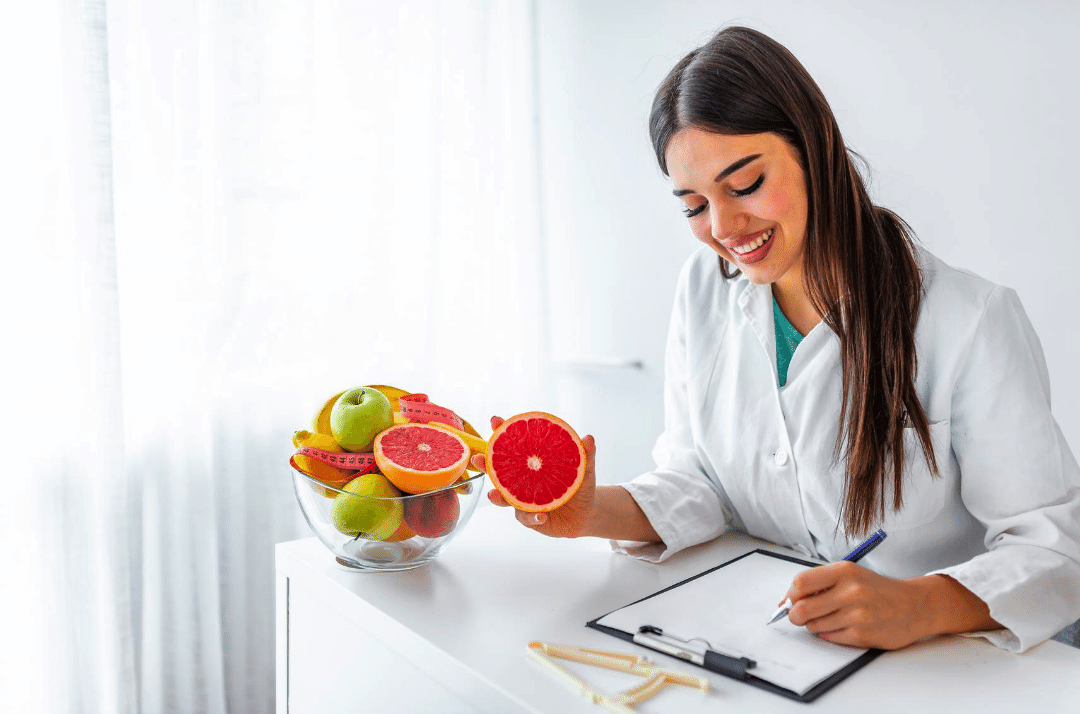The ongoing pandemic has confined most of us to our homes and ushered in a new normal when it comes to our lifestyle – less socialising, fewer options for grocery shopping and fewer instances of eating out. But perhaps the most significant change is that we have become more immobile than ever before. People have turned to many ways to deal with a sedentary lifestyle – whether it be online yoga lessons or incidental exercise beside work desks, taking the stairs a few times in a day or intermittent fasting.
This has shown that a lockdown doesn’t necessarily have to mean an unhealthy lifestyle and that we’re only a few steps away from developing a better routine. In this blog, we will focus on how to make smart dietary choices when living under a lockdown.
-
Eat mindfully
We are all experiencing emotional highs and lows during the pandemic, which is why it has become all the more important to eat according to the needs of the body and not according to our moods. Mindful eating can enhance the experience of eating your meals, reduce overeating, aid digestion and lessen anxiety. There are many hacks to eating more mindfully – you can choose to have meals at fixed hours everyday, eat without distractions and prepare your own food. A soup or a salad before the main course helps slow us down and does wonders to avoid binge-eating. Though it can be tempting, it is always a good idea to minimise eating packaged or canned food, and to eat until you are satisfied and not overly full
-
Increase your Calcium Intake
Our bodies require calcium for strong teeth and bones, for proper functioning of nerves and muscles, forming blood clots, and sending and receiving nerve signals, among other vital things. Despite the importance of calcium in our diets, it can be easy to ignore it. Make sure that you include these calcium rich food items in your diet which can be added to your daily diet – milk, almonds, yogurt, cheese, fish and green leafy vegetables like spinach, cabbage, okra and celery.
Get Personalised Advice On Your Diet from a Senior Dietician.


Get Personalised Advice On Your Diet from a Senior Dietician.
-
Stay Hydrated
Above all, your body needs to stay adequately hydrated to survive. Intake of fluids is essential for a healthy body. For the most part, water keeps your body hydrated and it is usually recommended to drink 8 glasses of water in a day. But if you are reluctant to drink plain water, you can always make your drinks more interesting – choose buttermilk, spiced milk or green tea. You may add a dash of lemon to your water or drink it with Jaljeera. While it’s best to limit caffeinated beverages, you can always opt for fruit or vegetable juices.
Lack of hydration can cause problems like fatigue, a dry mouth or sleepiness, confusion or dizziness. To avoid these, remember to prioritise your liquid intake.
-
Reduce Sugar and Starch
Eating too much sugar or starch is one of the most harmful things one can do to their body. Sugar is naturally found in fruits and many vegetables we eat everyday. Therefore, an additional dose of sugar is quite unnecessary and in excess, it can be rather deleterious to health.
To reduce sugar and starch in your diet, keep a check on white potatoes, white rice, white flour, baked items and refined sugar. You can replace them with whole grain flour, paneer, nuts, yogurt or chapati made with ragi flour. In your drinks, try using cinnamon sticks instead of sugar to impart an aroma and a light sweetness to them.
Cutting down on sugar can also help lose weight, reduce the risk of diabetes, prevent heart ailments and reduce inflammation. Replacing the starch in your diet with healthier alternatives can bring benefits like lower blood pressure, a more regulated appetite and an increased level of good cholesterol.
-
Include Antioxidants
A diet rich in antioxidants brings many advantages – healthy skin, higher immunity, low risk of heart disease and a healthy gut. One of the most popular foods rich in antioxidants is dark chocolate. Reward yourself with a portion or two with your tea or (unsugared) coffee at the end of a work day. There are other items to go to for antioxidants as well – kidney beans, raisins, walnuts and broccoli.
To sum it up
Many healthy alternatives are probably available on our kitchen shelves and many good lifestyle adjustments within our reach. While we are surrounded by excessive information, sometimes all it takes is a pair of new eyes to help us get into a better routine. Consider seeking the help of a dietician – with personalised plans, it is possible to find a solution that would work for you, without straying too far from your usual eating habits and budget..
Get Personalised Advice On Your Diet from a Senior Dietician.


